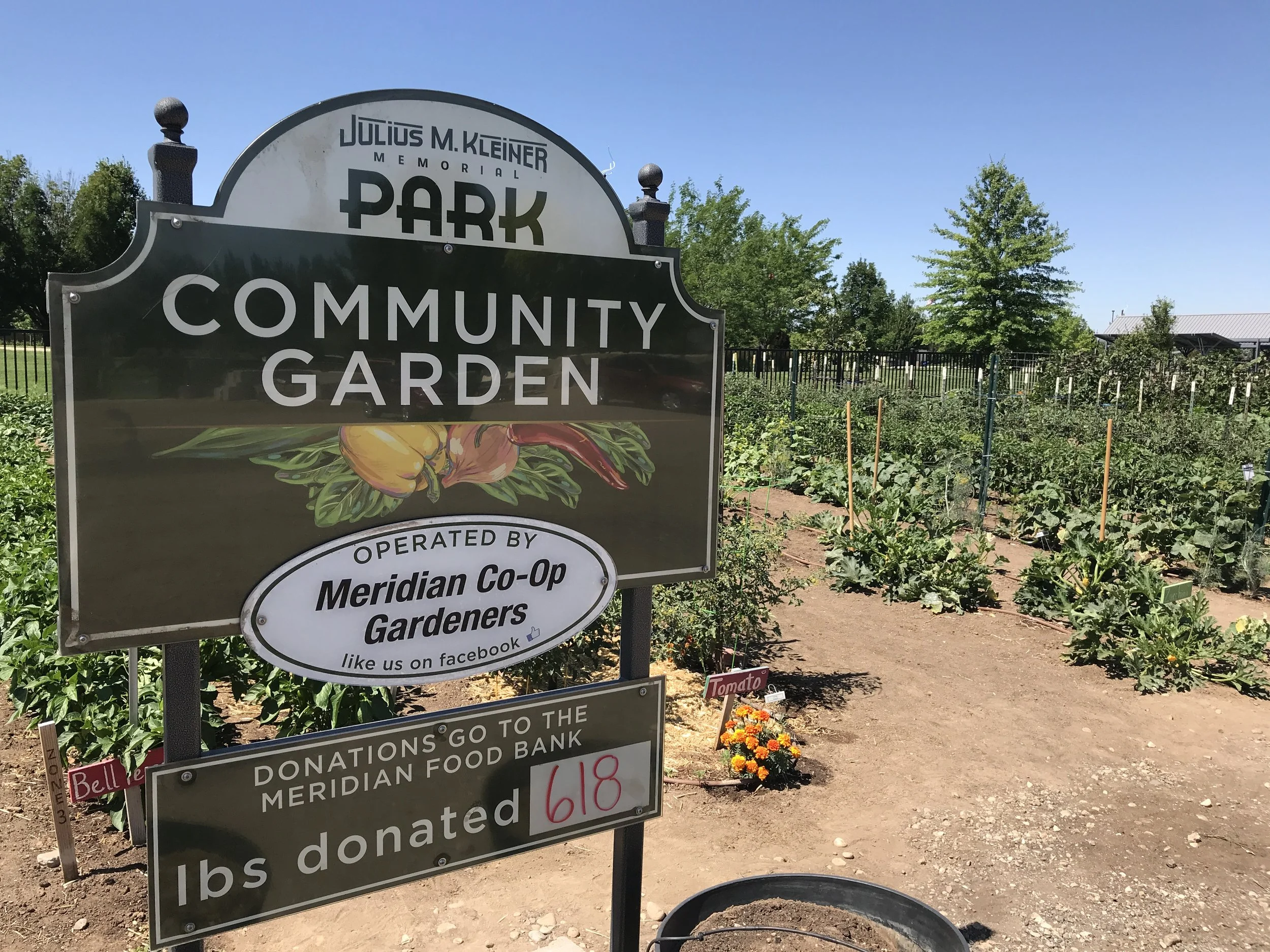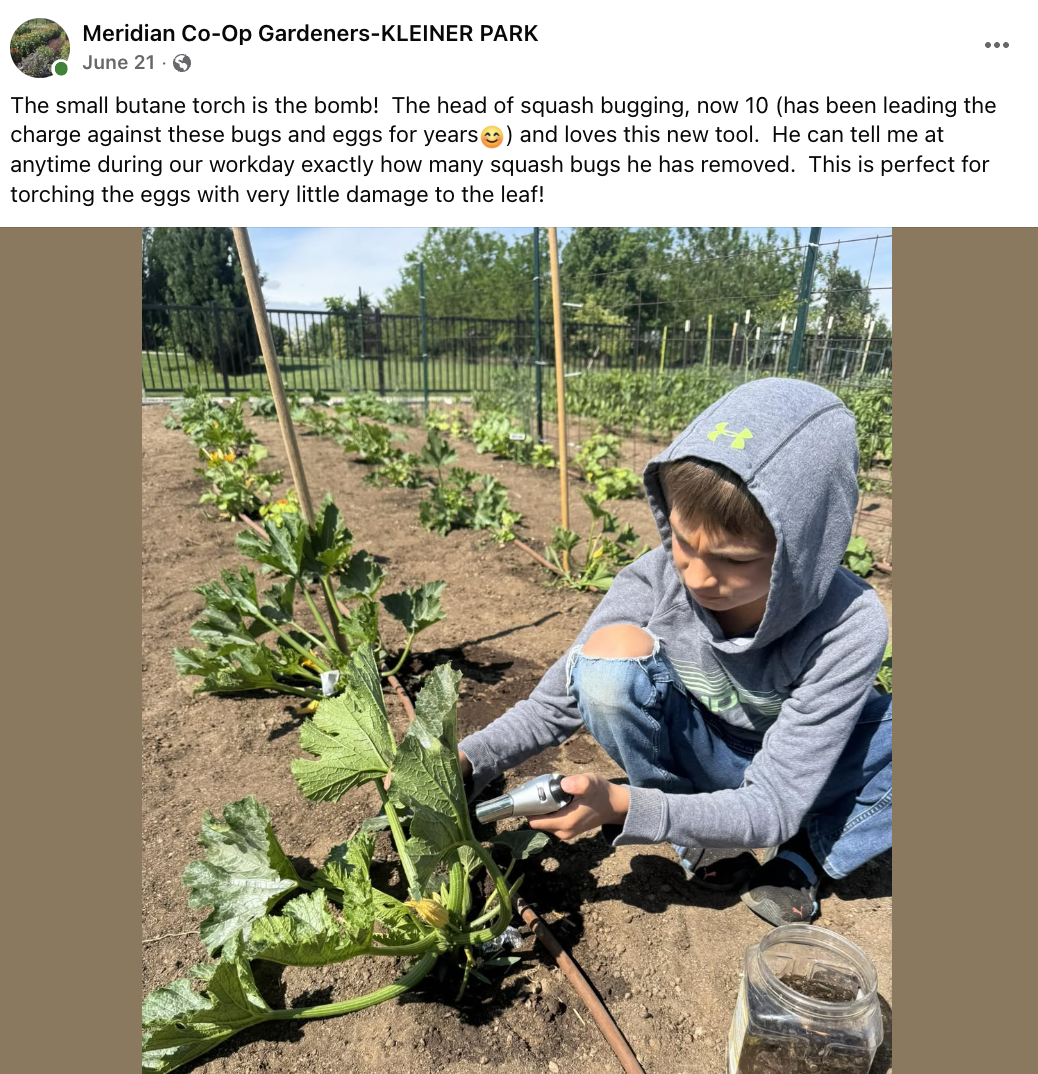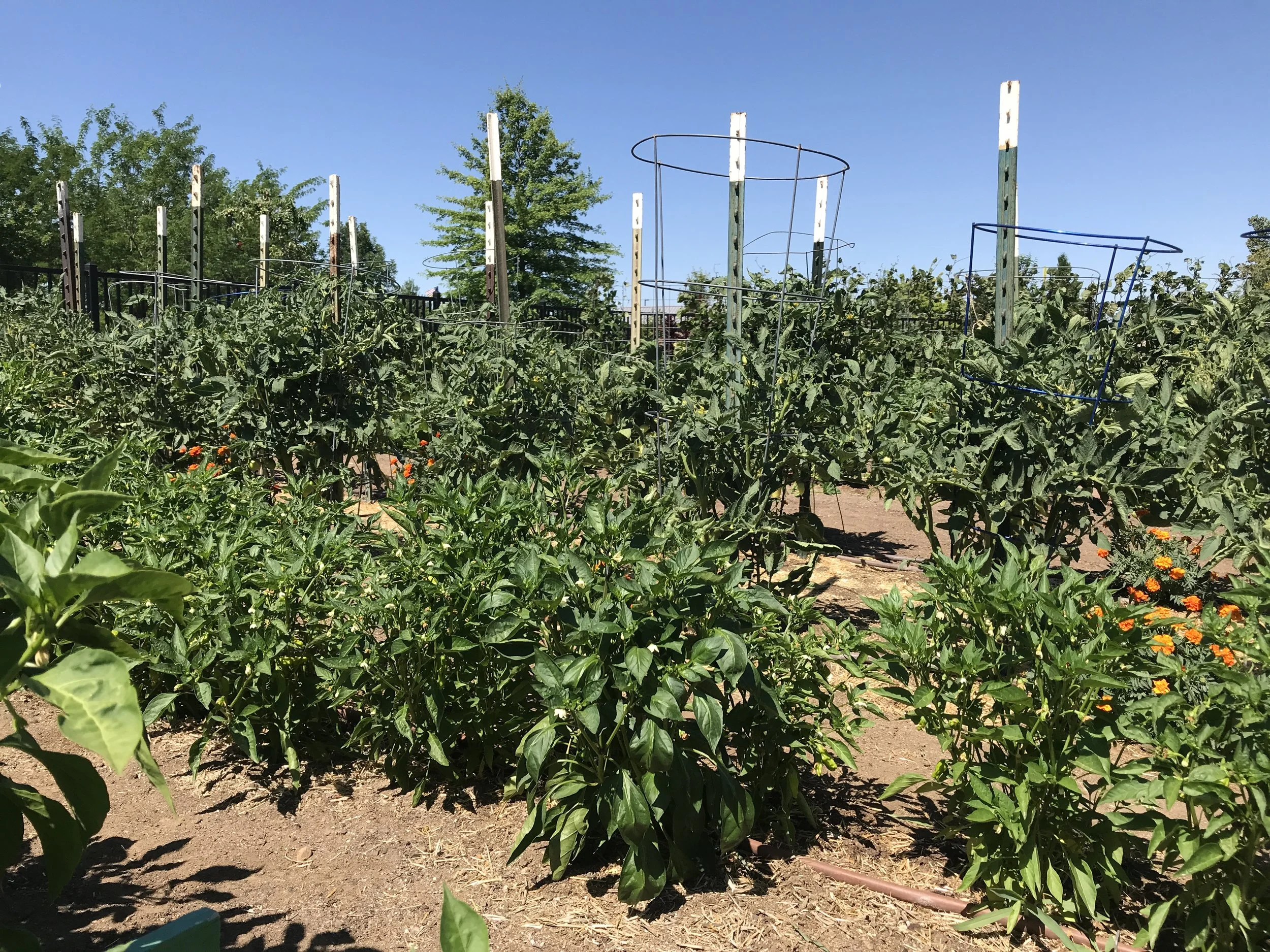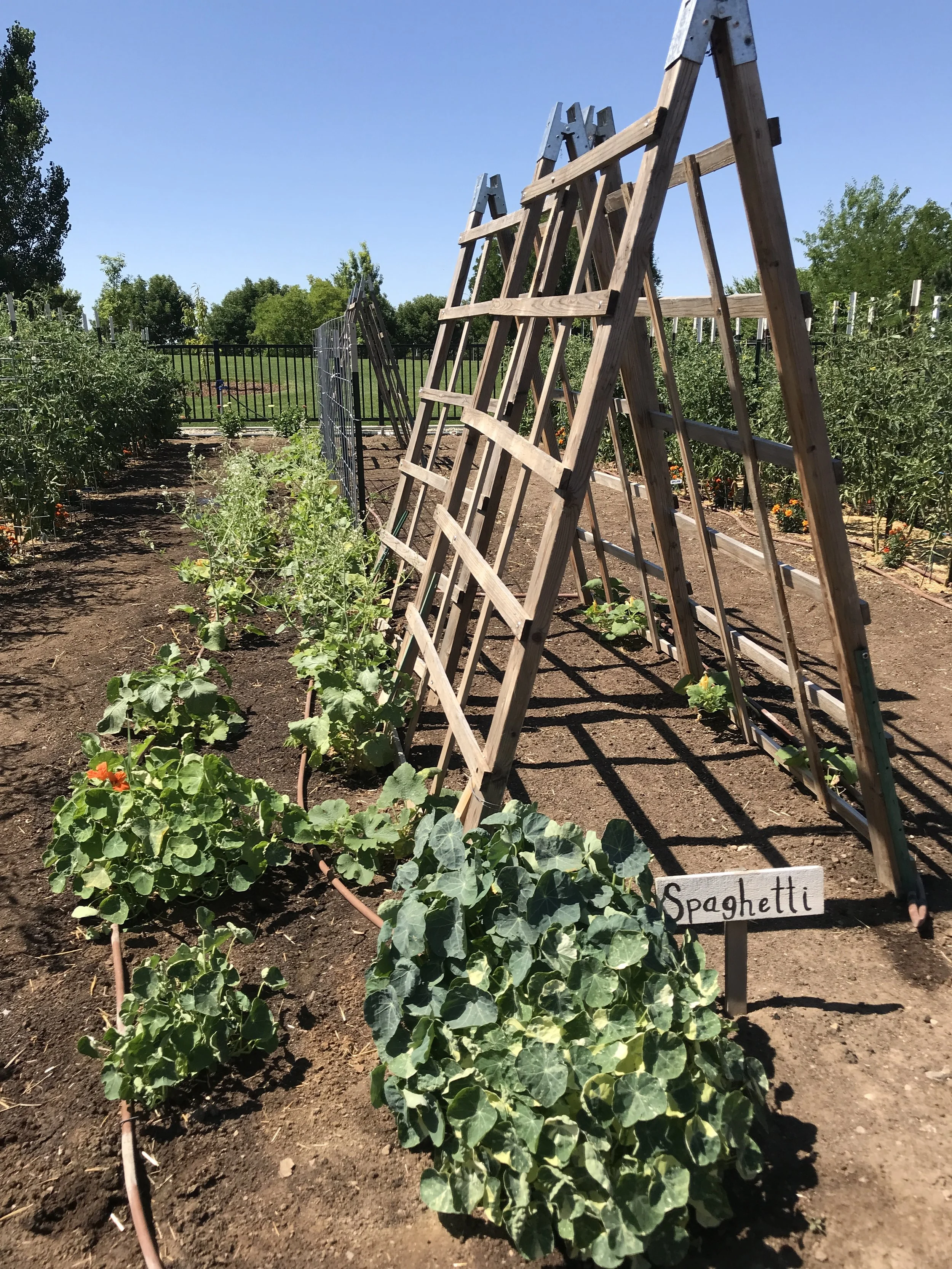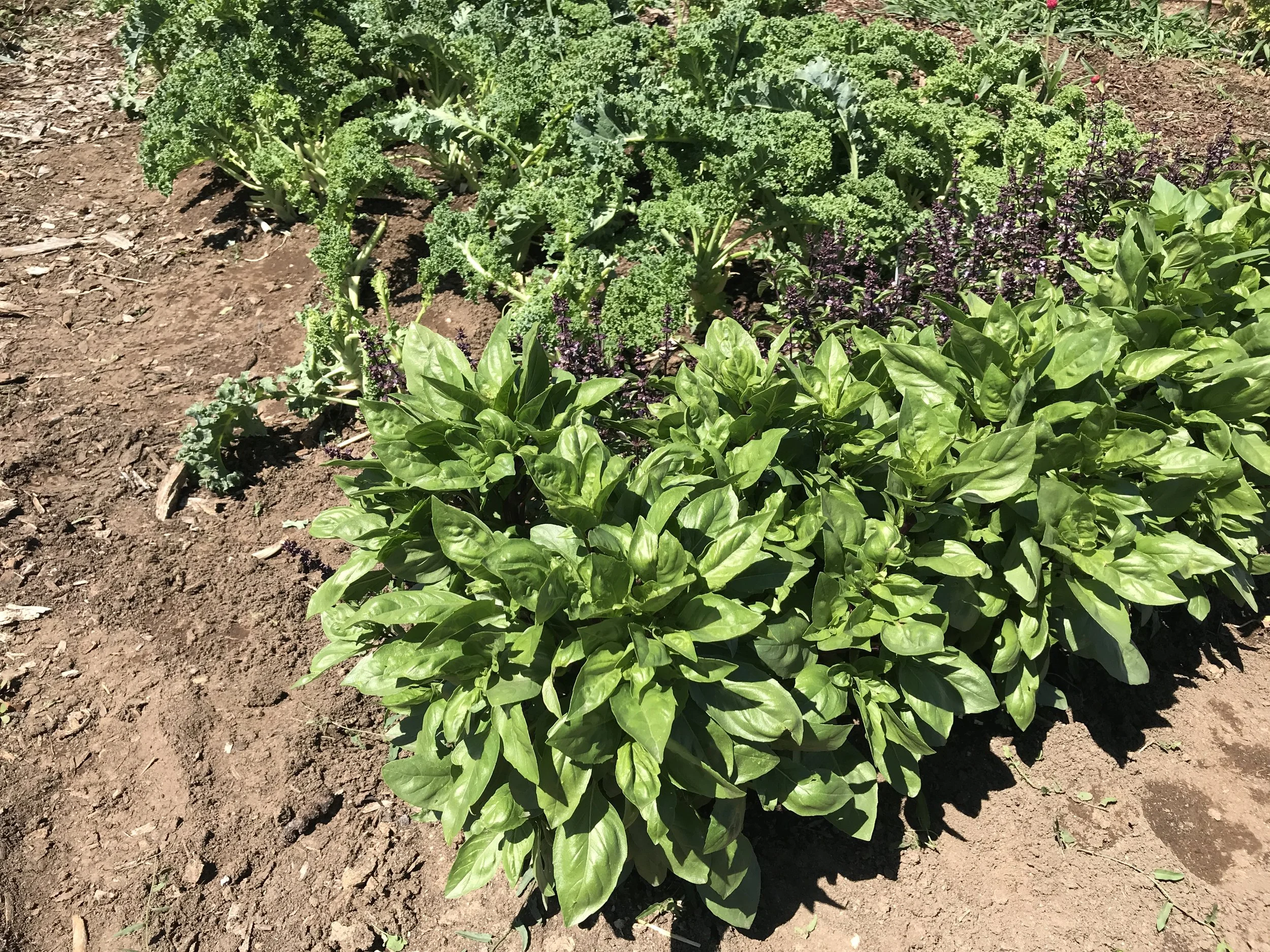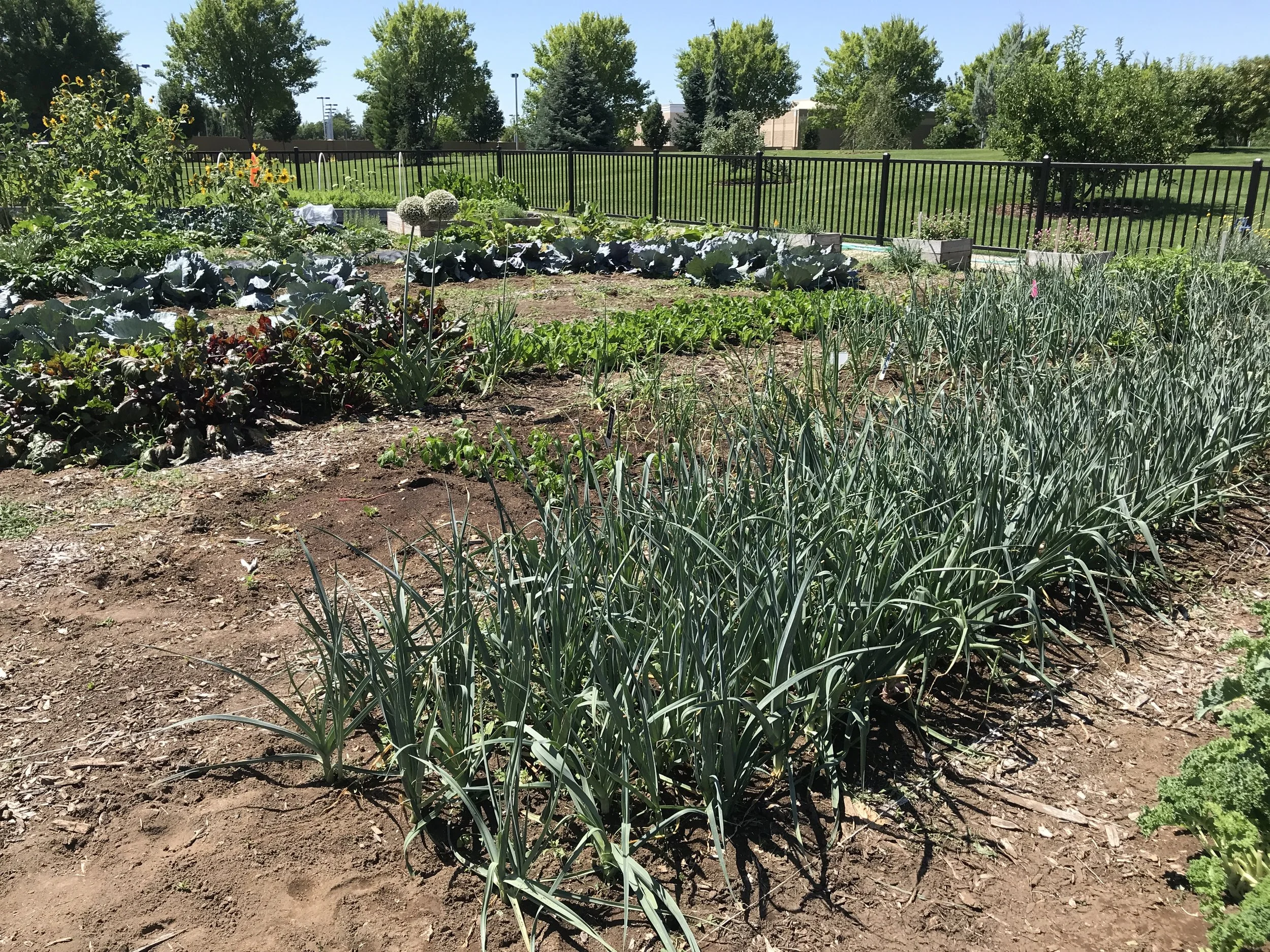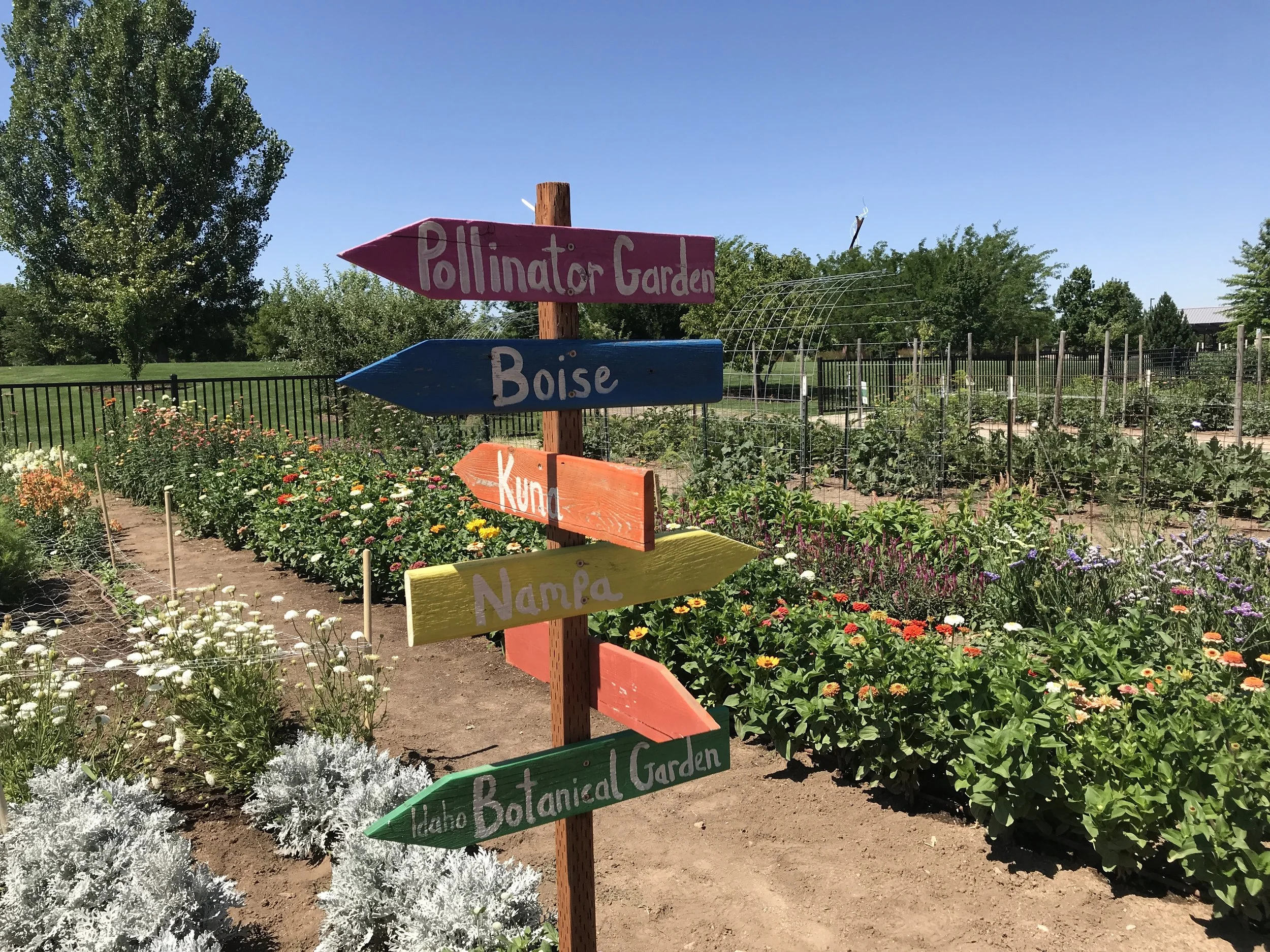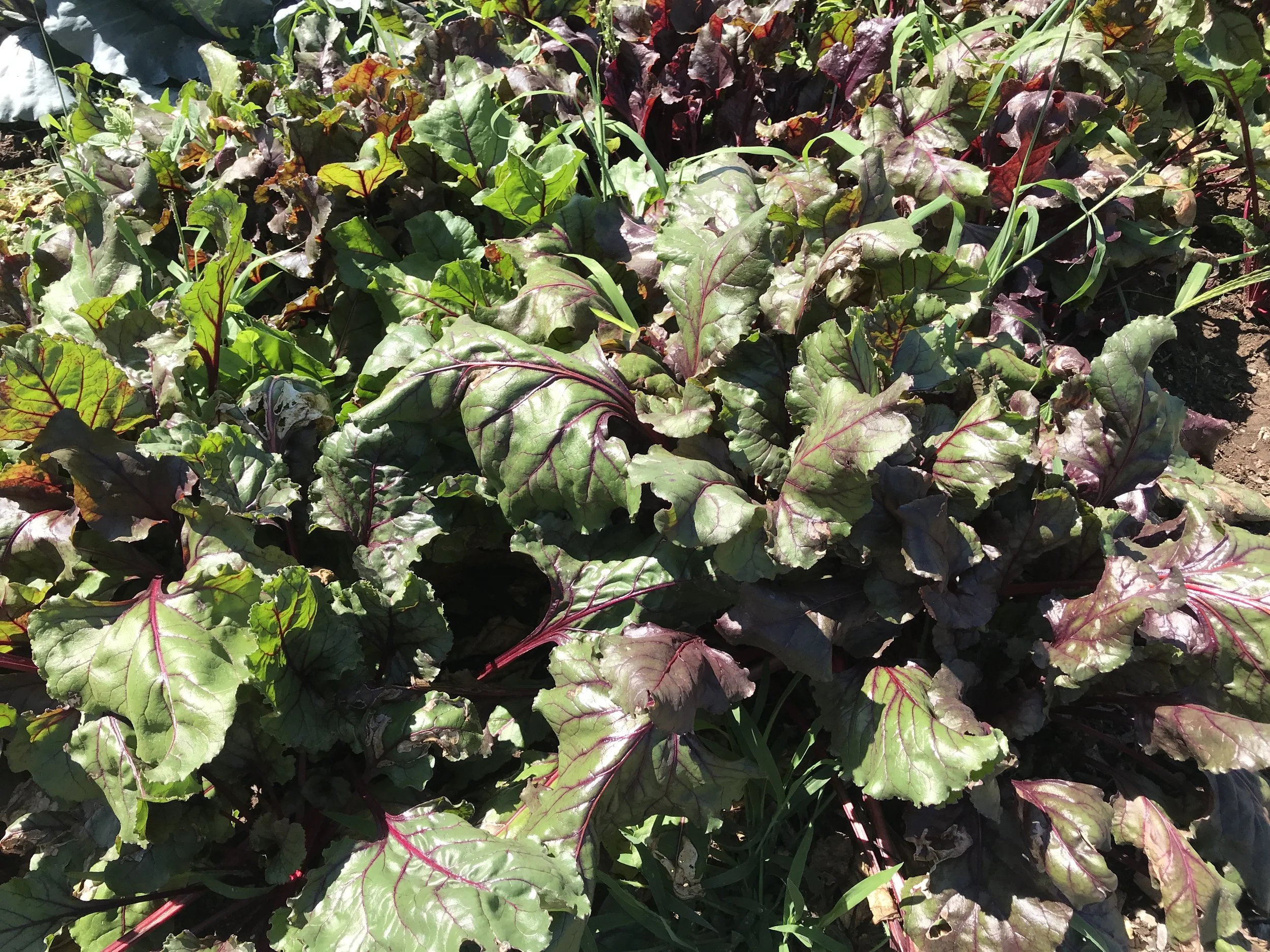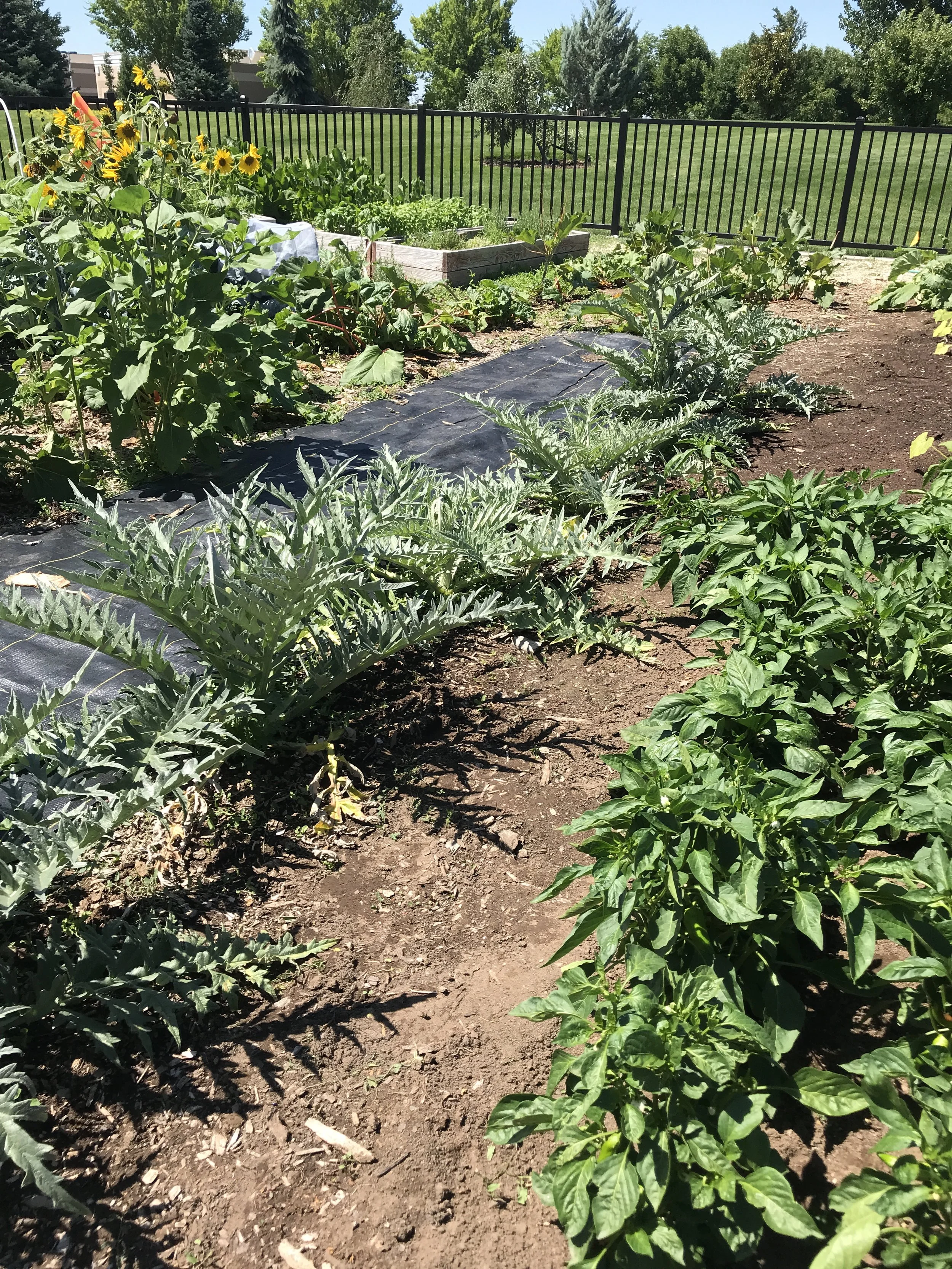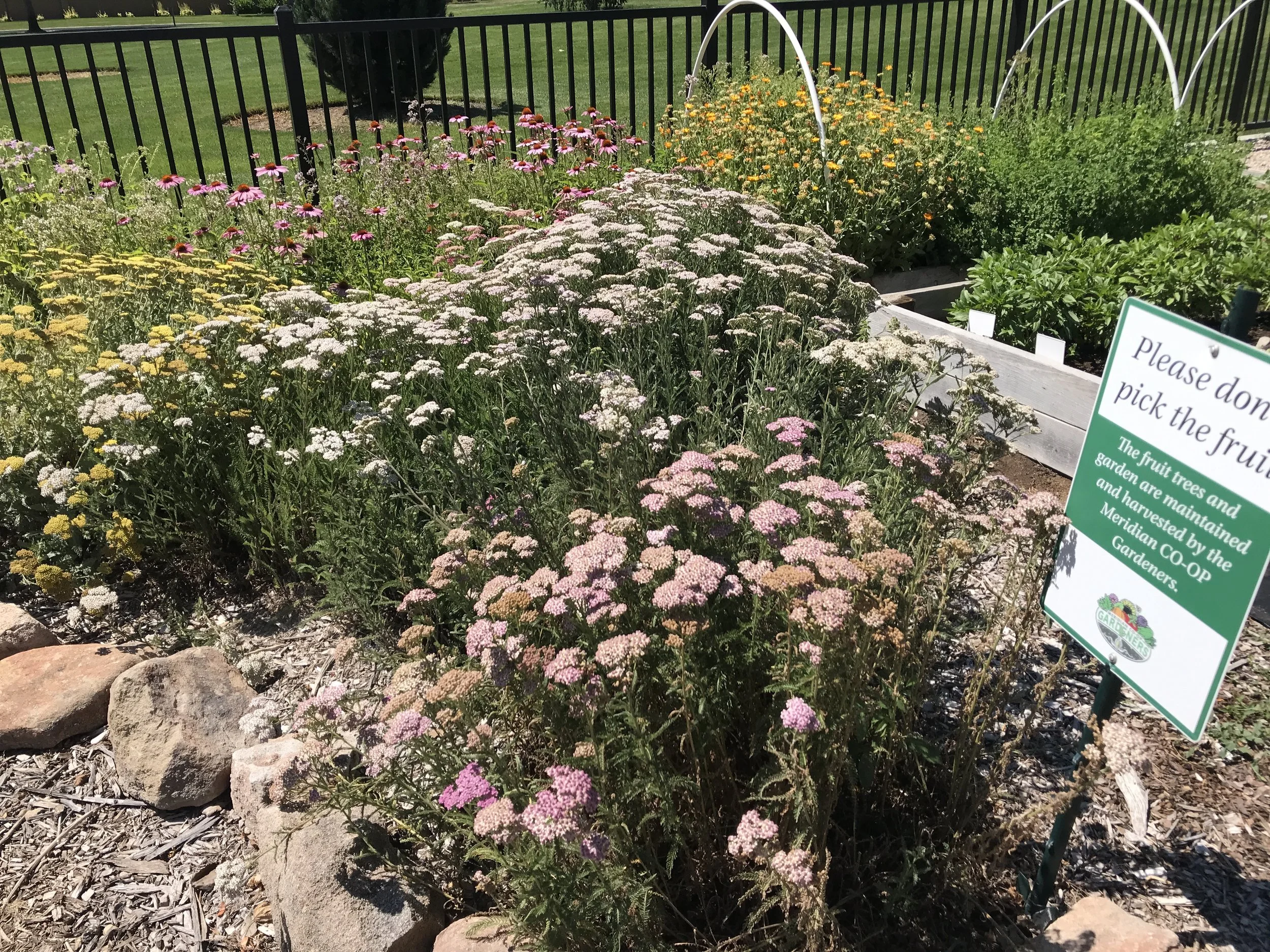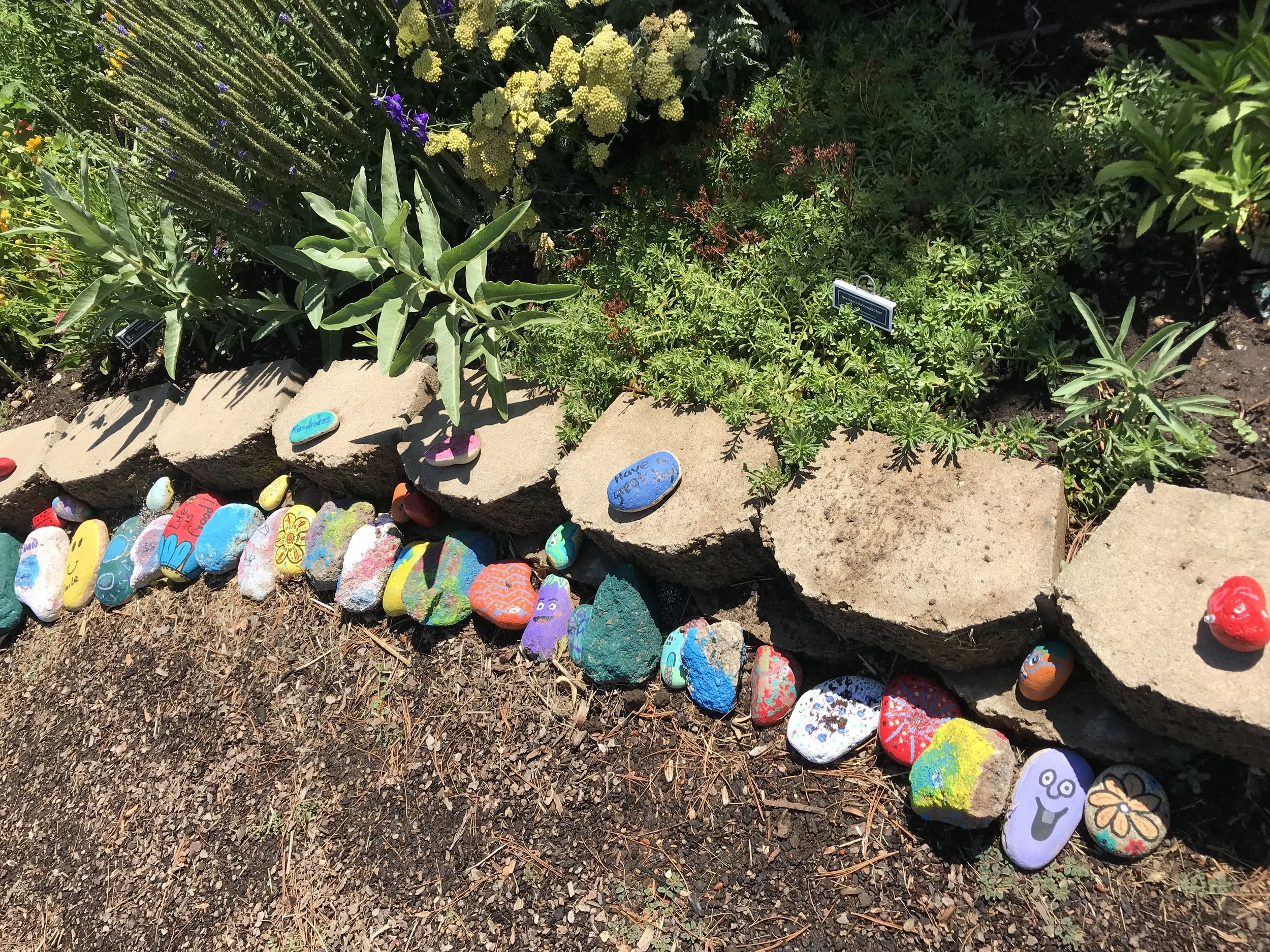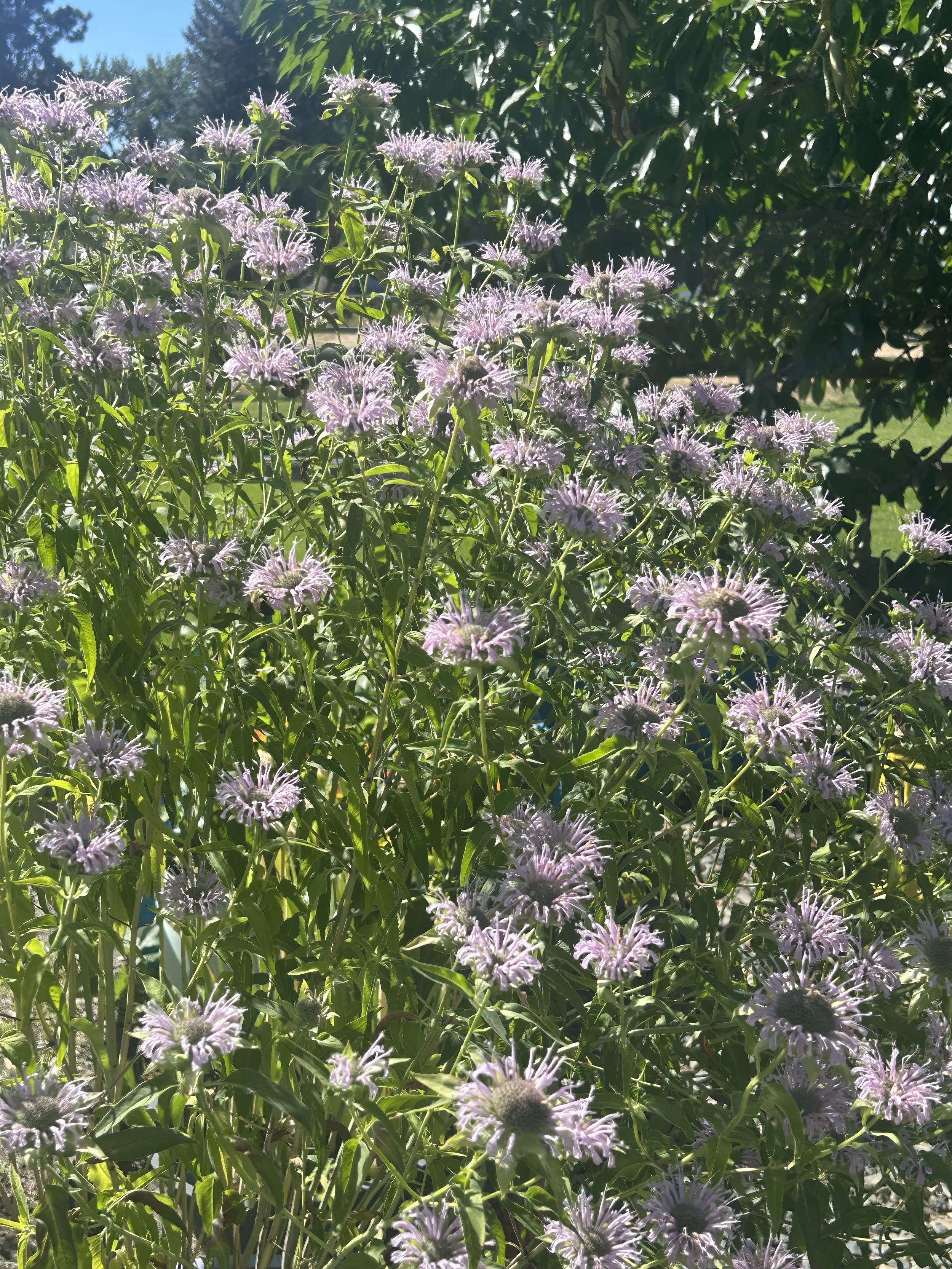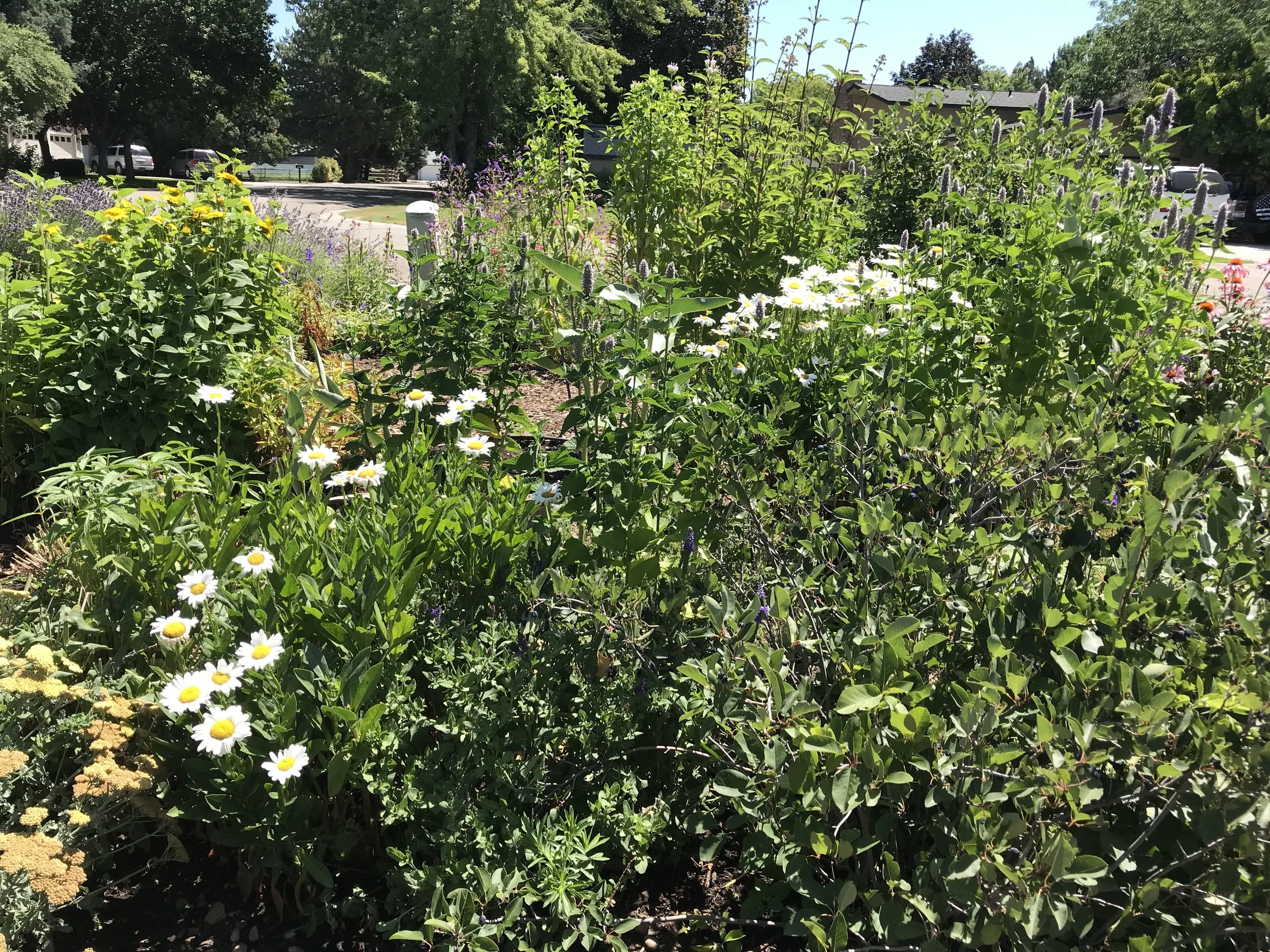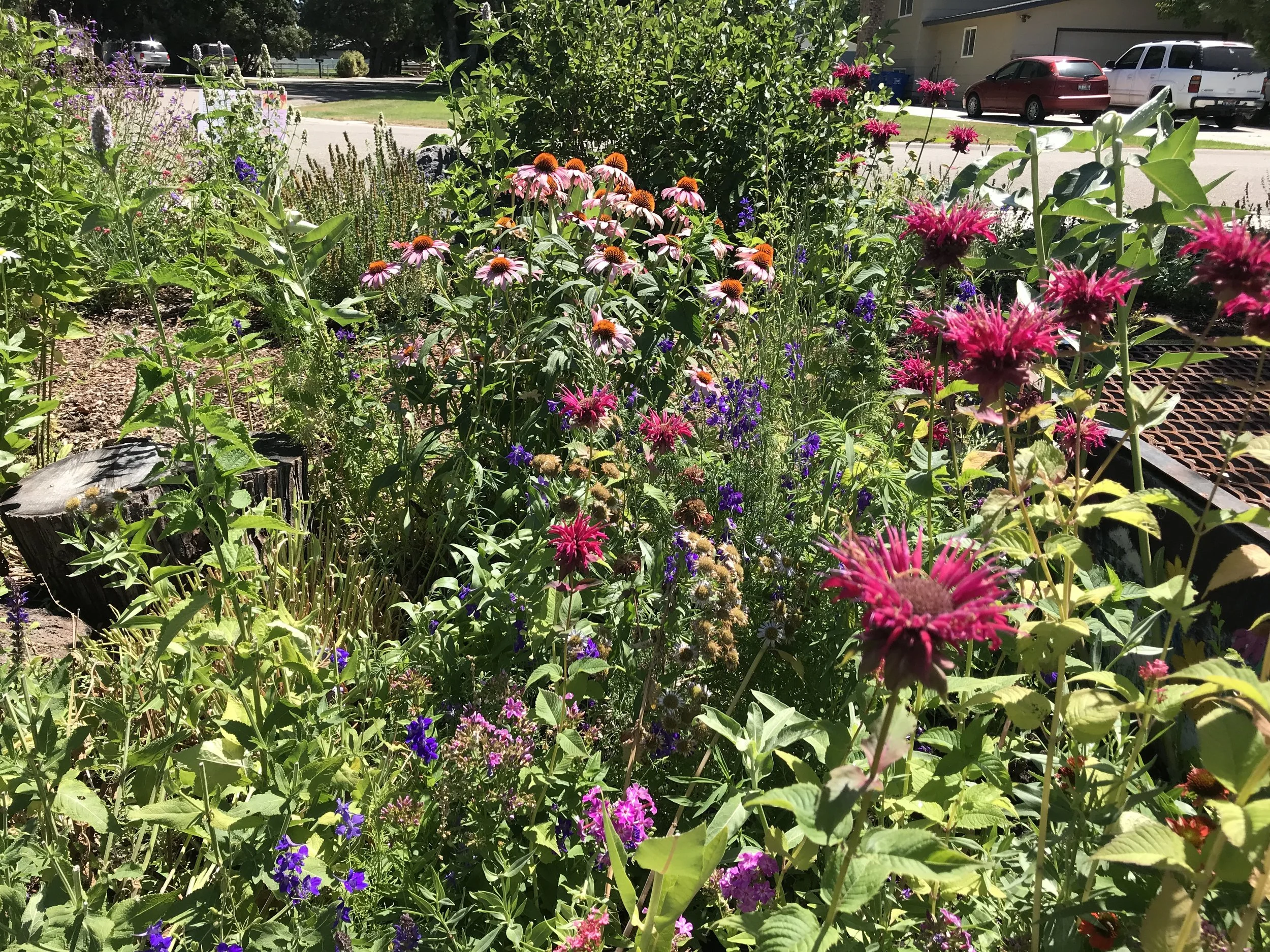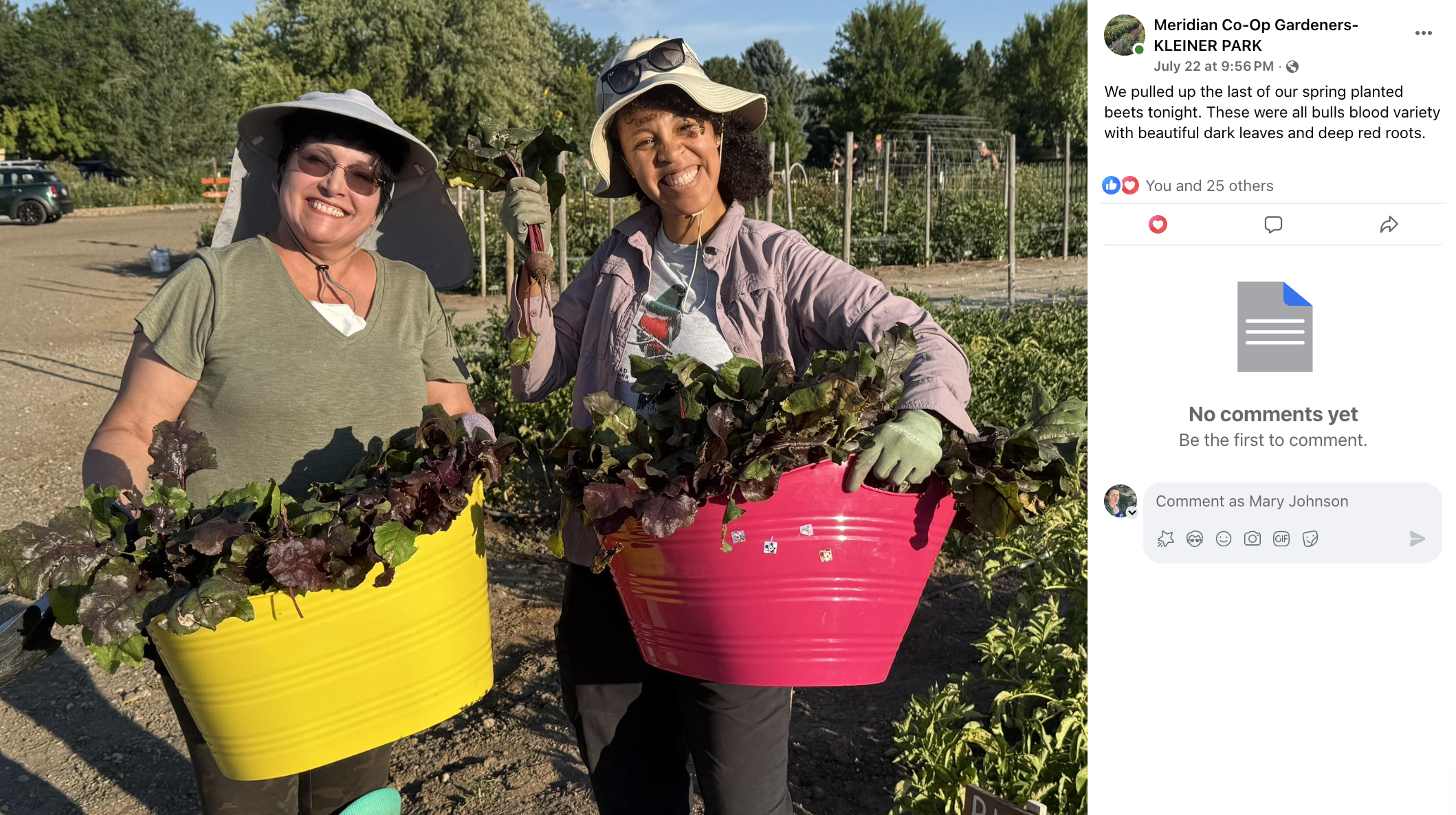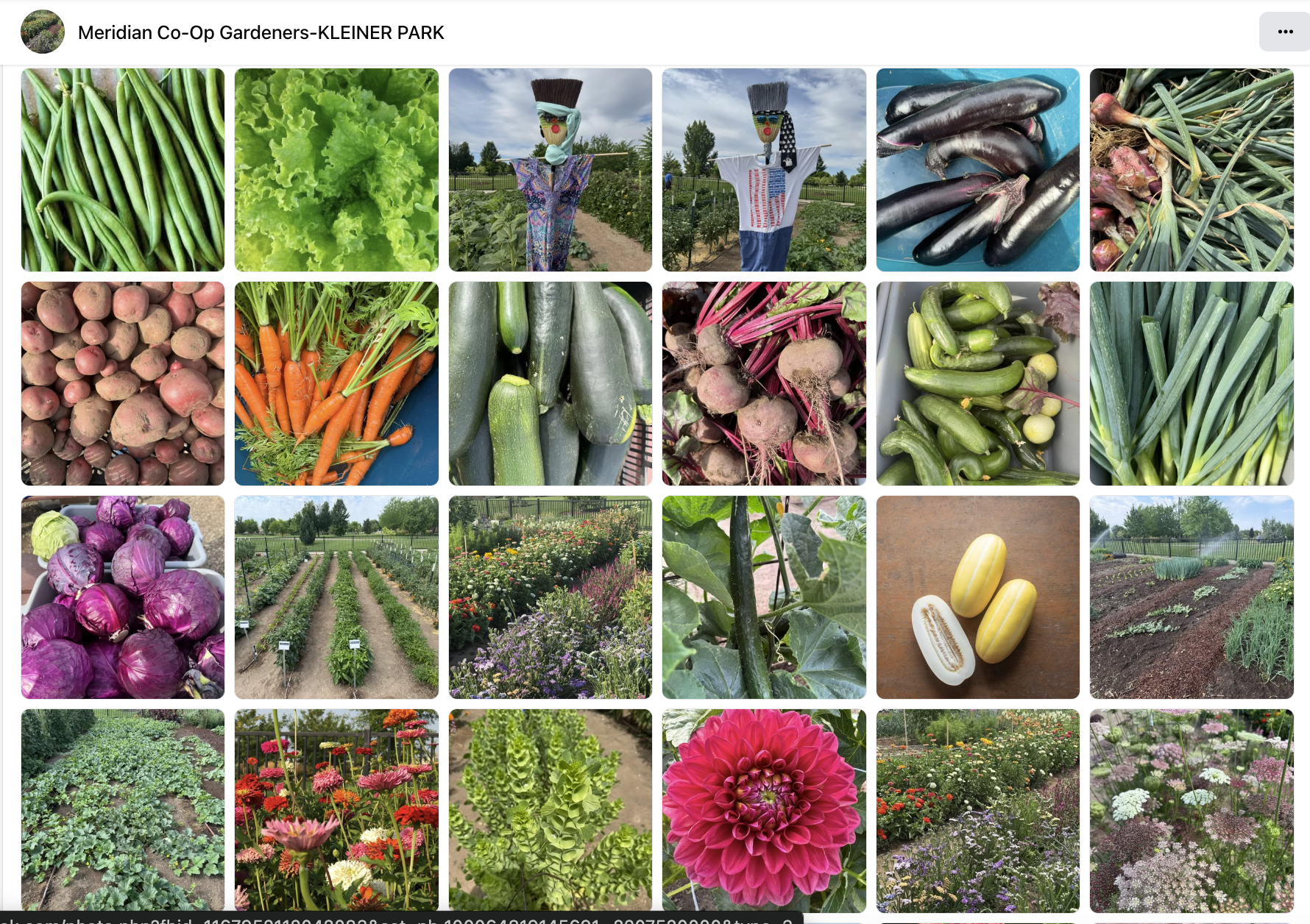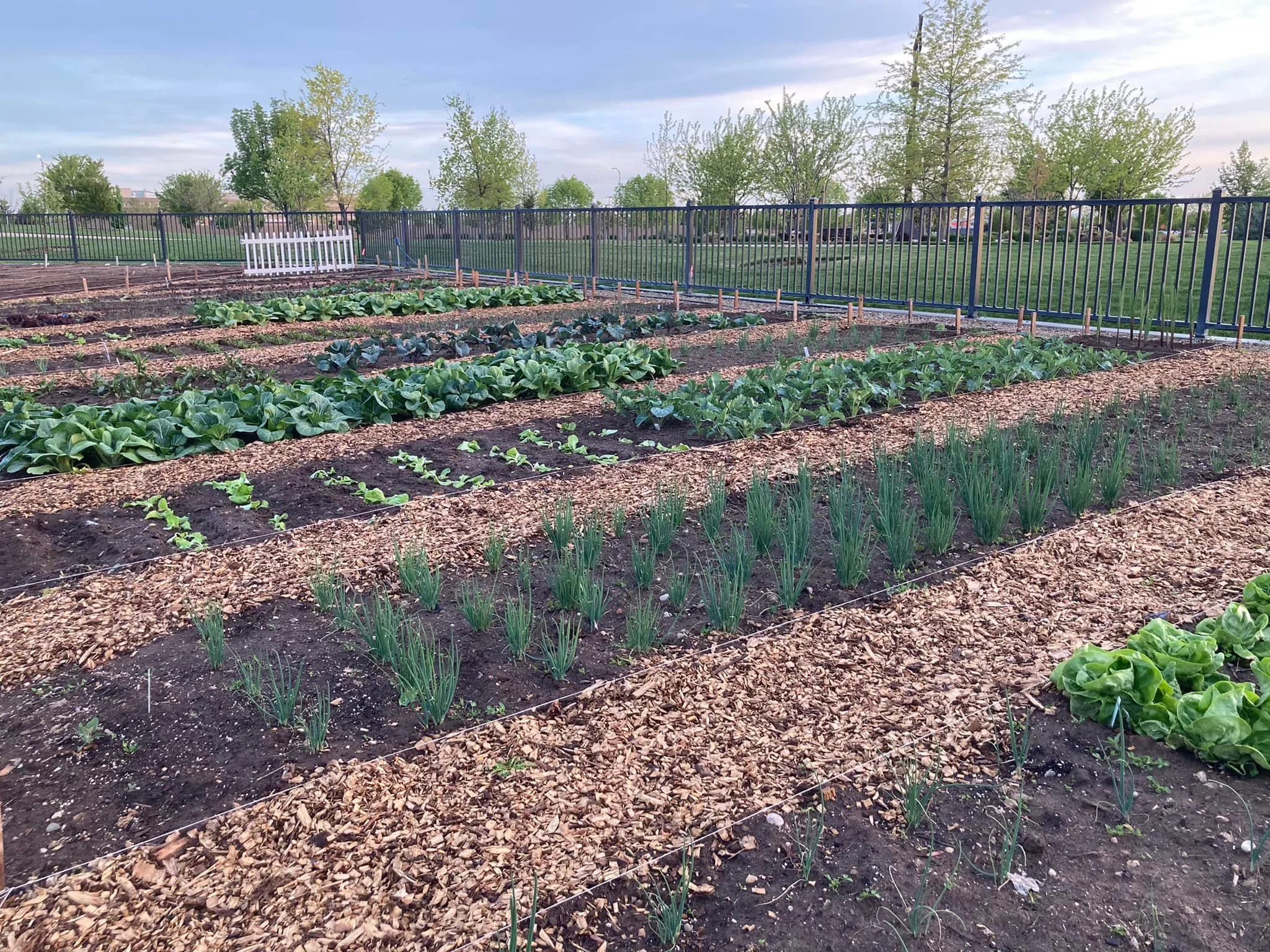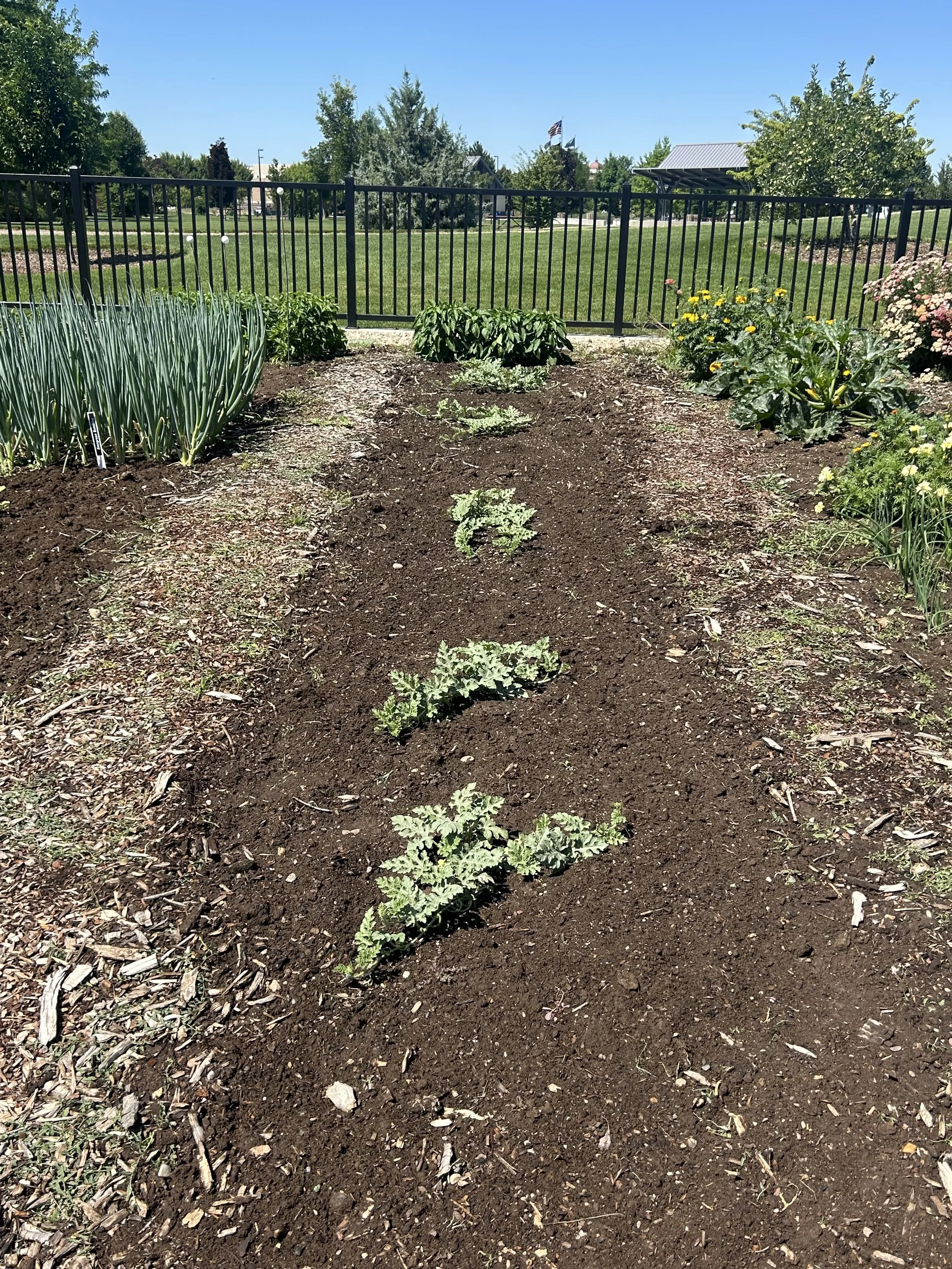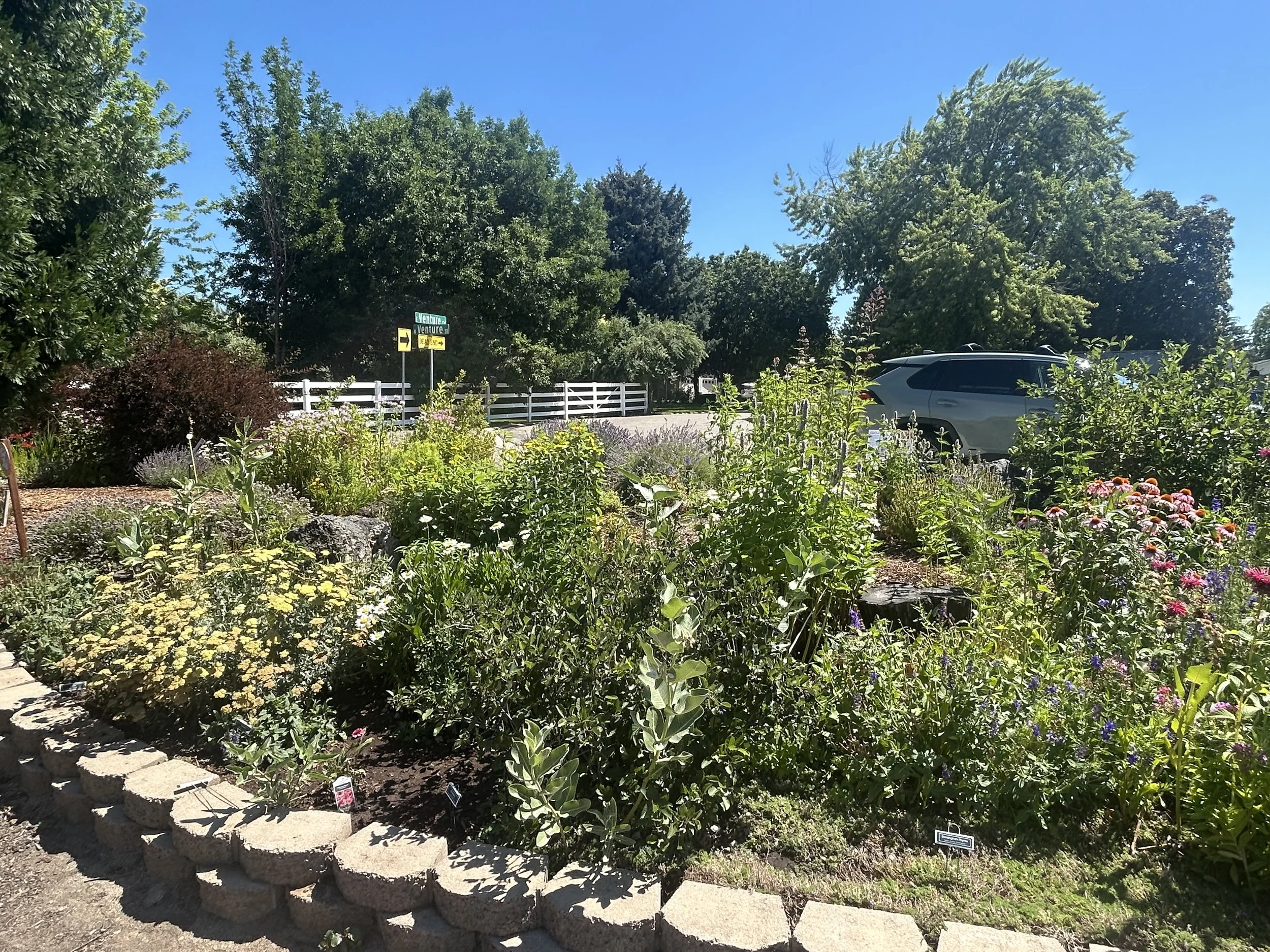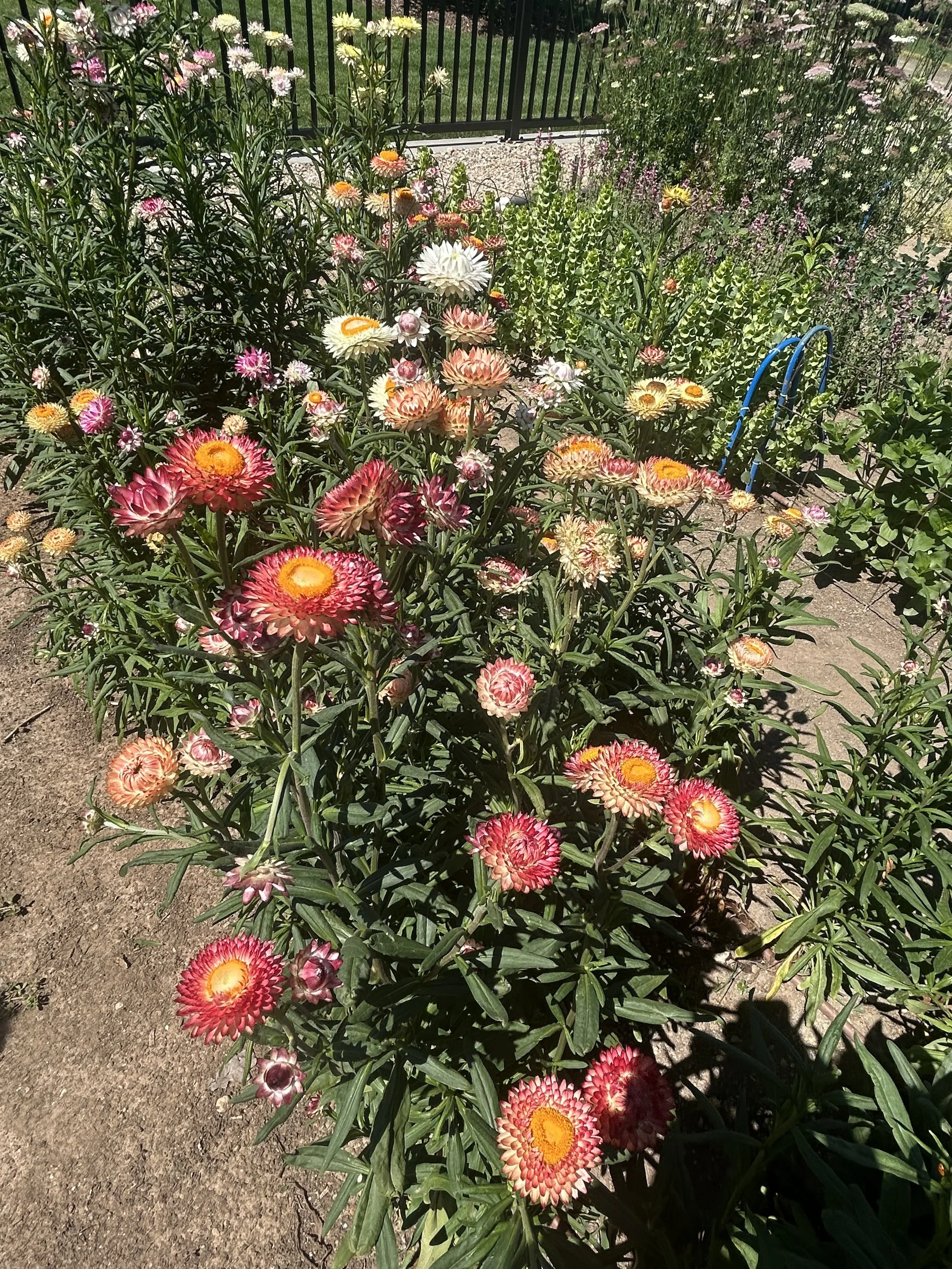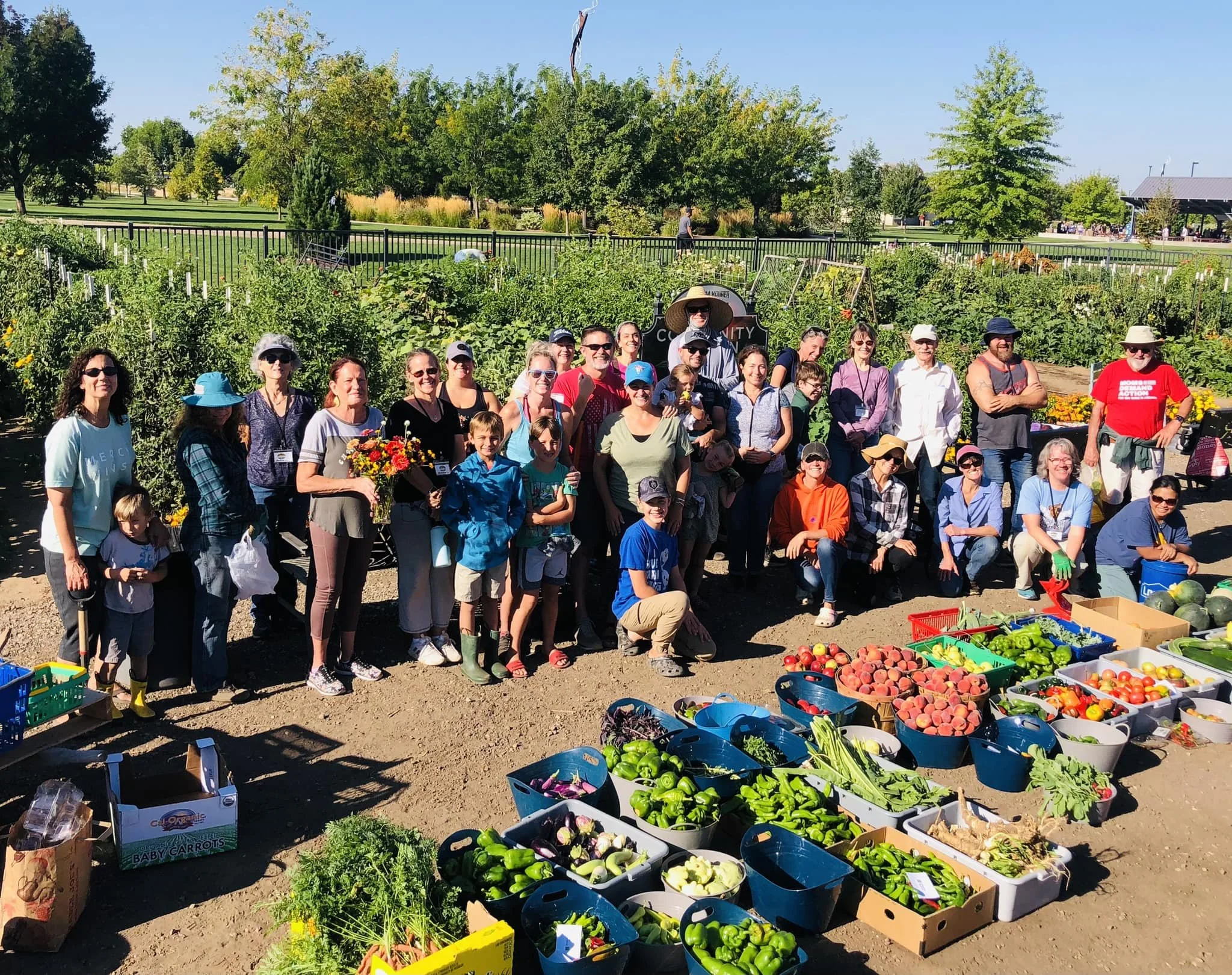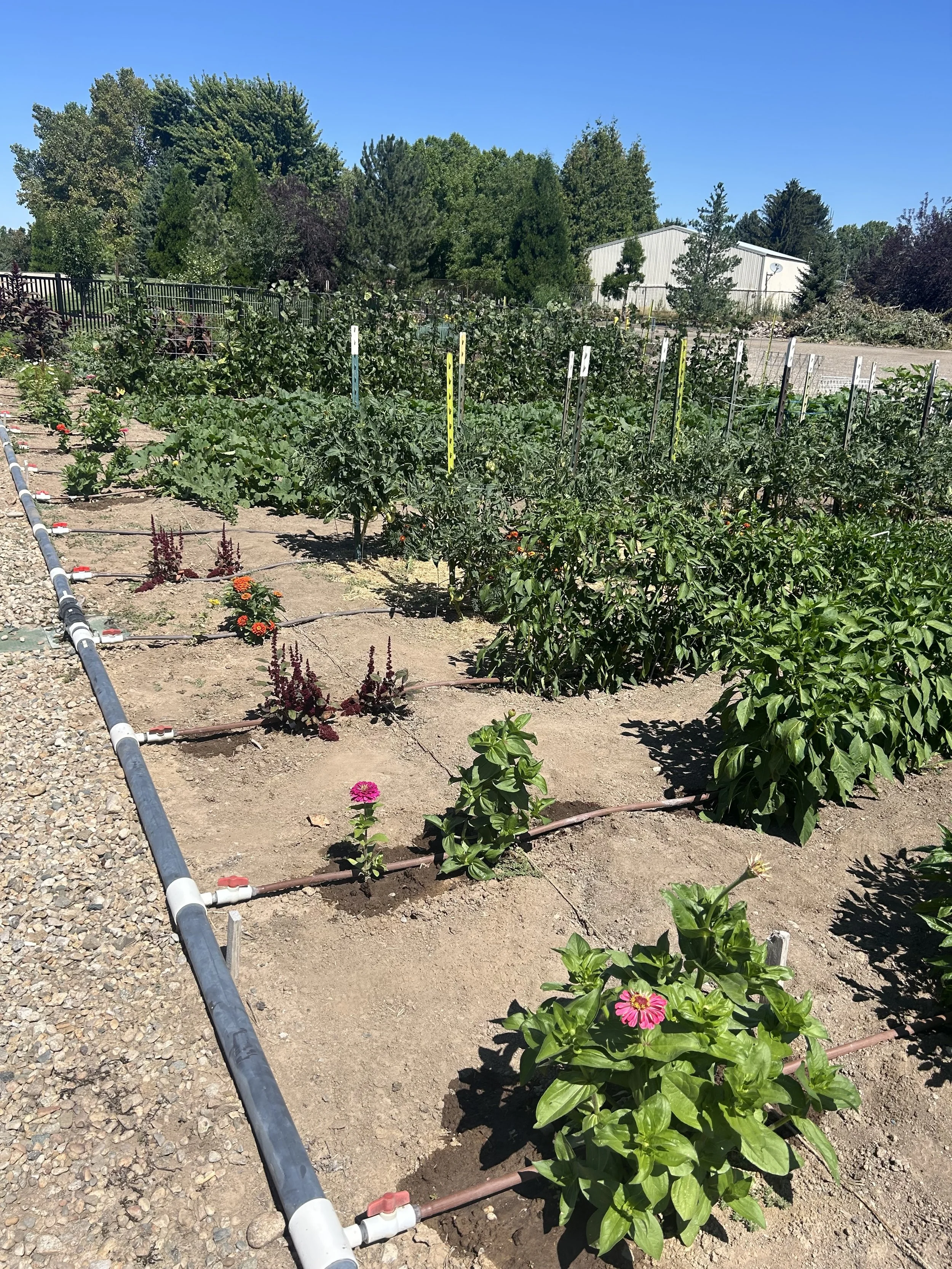Garden Spotlight: Meridian Co-op Garden
Over a decade of shared work, seasonal rhythms, and sun-warmed tomatoes
Since 2013, Juli Bokencamp has led the Meridian Co-op Garden at Kleiner Park—an entirely communal space that now feeds over 30 families each season. Located in a public park, the garden runs on shared commitment, staggered succession planting, and a structure that’s been refined year by year.
We visited in mid-July, during one of the hotter stretches of the season. Tuesday work sessions had been canceled for the entire month due to heat—but signs of steady care were everywhere: pumpkins ripening in the kids’ patch (a favorite spot for squash bugs—and the kids are vigilant about protecting the plants), flower beds in bloom, and a printed task list ready for the next round of shared work.
How it works
Kleiner Park's garden is a fully cooperative model. Gardeners plant, maintain, and harvest together. Workdays are scheduled in advance—40 per season—with an aim for no more than five missed by any one household.
“As a communal garden, they grow a whole lot more together than individually.”
Schedules and shift updates are communicated via a private Facebook group, while the public page features regular garden reports, questions, and seasonal insights shared by Juli. A printed work list is also posted on site—gardeners simply check the list and get to it.
Over time, teams have formed to handle specific areas of care. There’s a tomato team, a sanitizing team, and a squash bug patrol crew that’s not afraid to get creative. One of their kitchen torch videos reached 33,000 views online.
A season of refinement
Planting starts early—cold crops go in during the second week of April. From there, the garden just keeps building: melons, endive, escarole, tomatoes, peppers, onions, zucchini, kale, lettuce, and more.
“They build on success, season after season—starting with cold crops and layering in melons, endive, escarole, and more.”
Some of the crops are planted just for a taste—but that’s factored in when you're feeding over 30 families.
In recent seasons, the garden lost a significant portion of the tomato crop— one year, they came to the conclusion it was likely yellow leaf curl virus, transmitted from plant to plant by white fly. Some heavier watering during the past two back-to-back record-breaking hot summers may have contributed to other complications. This season, with more careful watering and team coordination, the plants are thriving, with all 160 tomato plants! That’s a major milestone.
Adapting through challenge
This has been the worst year yet for weeds. Gardeners suspect the issue may have started in a compost batch, noting that bindweed made its first appearance three years ago. They rely heavily on hand weeding and fire.
Herbicide drift* may have affected some plants this season, including tomatoes and zinnias—causing curling, stunting, and frost-like damage. The city’s parks team wasn’t found to be responsible, and seedlings that were transplanted after the damaged plants were removed grew normally, making compost the less likely culprit. Neighboring properties are also a possibility.
*Correction: This occurred several years ago, and the issue hasn’t happened since!
Corn has been phased out—it’s too hard on the soil, and the yield doesn’t stretch far enough to feed the group. They’ve also moved toward shorter rows and more intentional spacing, allowing for easier access while preserving growing space.
Sharing the harvest
Each participating household receives a share of the harvest, with flexibility for larger families. There’s also gentle education around misfit foods—gardeners are encouraged to take produce that may not be the most beautiful, while the best-looking harvest is set aside for donations.
You too can feast your eyes on the epic harvests and results of their amazing work here!
They host in-garden cut flower days, where community members can visit, make their own bouquets, and donate to the garden if they choose. In turn, the garden donates bouquets to hospitals, assisted living facilities, and senior centers around town.
Gardeners love delivering floral arrangements to different places in the community—and they also do occasional tomato giveaways when the harvest is high.
“Some crops are just a taste—but that’s factored in when you’re feeding 30+ families.”
Hands in the soil, hearts in the work
Every other week, around 20–25 kids come out for craft and garden time. They dig, plant, harvest, and hunt for squash bugs—especially in the pumpkin patch.
They love digging, planting, harvesting, squash bugs. They learn everything to do in the garden.
Messy, effective, and fun hands-on learning.
Holding it together
Annual dues are $40, and the budget remains lean. Funds go toward seeds, starts, compost tea, replacement tools, and signage. Gardeners also bring in a little extra through county fair entries, with blue ribbons earned in 2021, 2023, and 2024.
Juli starts nearly everything at home—in 72-cell trays, including the fall beets—and continues to handle scheduling, communication, and overall leadership. She’s been looking for a successor or co-manager for years, but hasn’t yet found someone able to step in. For now, she continues to lead with generosity and vision.
The City of Meridian provides insurance, and they’ve benefited from collaborations with a nearby CSA farmer on crops like potatoes, garlic, and sweet potatoes. Seed donations have helped in the past—especially from Snake River Seed Cooperative and Territorial Seed—though some companies have since paused donations due to the garden’s non-501(c)(3) status.
Still building
They compost on-site (excluding weeds and seeds) and collaborates with the city to turn the piles using mechanized movers. Woodchips are used in walkways, and buckwheat is sometimes planted mid-season to fill open rows. Fall cover crops haven’t always paid off due to lack of precipitation and delayed water access—city irrigation doesn’t kick in until mid-April. Still, they keep trying, adjusting, learning.
“The community they’ve built feels like the logic behind the garden’s staying power.”
Some drive across town. Some have been coming for 11 years. Some grew up here. The commitment is real—and so is the food.
Year after year, the Meridian Co-op Garden shows what’s possible when people work together with care and consistency. Through shared effort, careful planning, and a whole lot of heart, they’ve turned a patch of city park into a place of nourishment—not just in pounds of food, but in community connection, learning, and generosity.
It’s a reminder that with coordination and a lot of dedication, we can grow far more than food.

